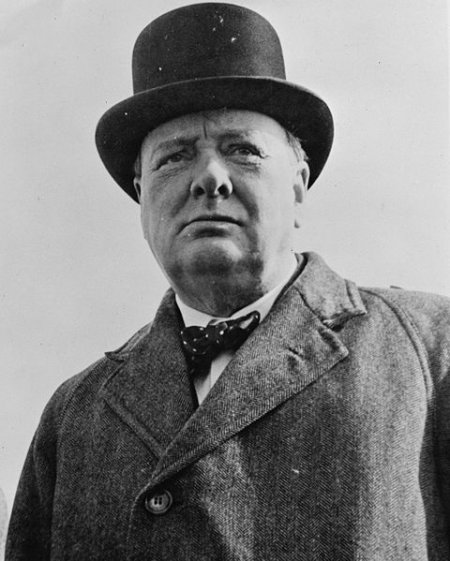Today is the 70th anniversary of the beginning of intense German waves of bomb attacks over Britain on the 7th September 1940. The media coined the attacks to be known as the Blitz in reference to the German word 'lightning'. The bombing took place all over Britain but began in London for 76 consecutive nights, ending in May 1941, with over 43,000 civilians killed in the experience and more than a million houses destroyed in London alone. Hull suffered the most heavily after London, with over 85% of homes being destroyed or damaged.
Cities all over the country were targeted for destruction, but Oxford was left free from attack as Adolf Hitler planned to make it the Capital City. The goal of the attacks were to demoralise Britain to surrender to the Nazis, but they didn't do much to help the Germans advance into Britain. The Blitz was one of the key events that happened during the Battle of Britain 70 years ago.
The battle of Britain was announced by Churchill when he proclaimed "... the Battle of France is over. The Battle of Britain is about to begin." on the 18th June 1940. Just four days later France surrendered to Germany and the Nazis turned to taking over Britain. To facilitate the bomb strike of Britain the Luftwaffe needed to take control of the skies. Hermann Goering the head of the Luftwaffe, proclaimed that the RAF needed to be "beaten down to such an extent that it can no longer muster any power of attack worth mentioning against the German crossing". Even with the advantage of having the most planes and experienced pilots, the Luftwaffe were flying in enemy territory, and the RAF had the indispensable radar for detecting raids.
Ships were initially targeted in the English Channel, and coastal towns and defenses were bombed in mid-July 1940. Starting on the 12th of August the Luftwaffe turned their attention to the destruction of the RAF attacking airfields and radar bases. Believing that they were close to destroying the RAF, they starting engaging in air combat. Goering became so frustrated at the large number of British planes still in service that he set his sites on destroying London and other key cities on the 4th of September. On the 15th September, known as 'Battle of Britain Day', the RAF obliterated the enormous Luftwaffe formations above London and the South Coast. Failing to win air superiority, the Nazis turned their attention to dominating the Soviet Union instead, although the Luftwaffe continued its bombing of Britain until the end of WW2.
To commemorate the beginning of the Blitz 70 years ago, today there was a service at St Paul's Cathedral, attended by Pilots, firefighters, nurses and ambulance workers who battled through the bombing raids. There will be numerous memorial services all over the country today also to mark the event.
Today is also the opening day of the an exhibition to mark the 70th anniversary of the Blitz at the London Transport Museum called 'Under Attack'. London Mayor Boris Johnson opened the exhibition last night and it contains work by artists from the period, including posters by Tom Eckersley, Fougasse and Eric Kennington. The exhibition lasts until May 31st 2011 and is open Monday - Thursday, Saturday & Sunday 10.00 to 18.00 (last admission 17.15). Friday 11.00 - 18.00 (last admission 17.15). Adults £10; Senior citizens £8; students £6.00. Children under 16 free, children under 12 must be accompanied by an adult. London Transport Museum is located in the south east corner of Covent Garden Piazza. See www.ltmuseum.co.uk.
The famous precursor speech to the Battle of Britain made by Winson Churchill was read out by actor Robert Hardy at 3.52pm, August 2010, exactly 70 years after it was iconically made outside the Churchill War Rooms in central London. It was followed by a Spitfire and Hurricane fighter-plane flypast over Whitehall. You can visit Churchill's Cabinet War Rooms until the end of September 9.30am to 18.00pm at King Charles Street London SW1A 2AQ, located near Westminster tube. Admission is Adult: £14.95 , Senior citizens: £12.00, Students: £12.00 and children under 16 go free. For more information go to cwr.iwm.org.uk.
To learn more about the Battle of Britain, you have until the end of October to go visit the Kent battle of Britain Museum. Open Tuesday to Sunday, 10.00 until 17.00 in September and 10.00 until 16.00 in October in Aerodrome Road, HawkingeNr. Folkestone, Kent CT18 7AG. Call 01303 893140 or go to www.kbobm.org for detailed directions.
